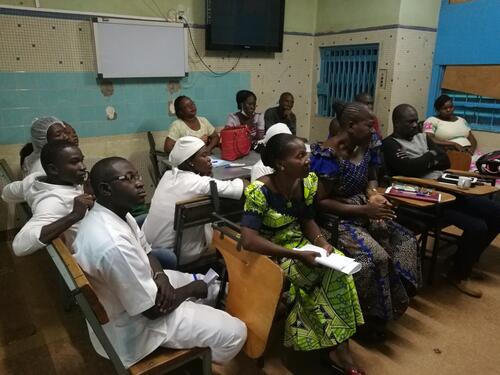A dengue epidemic was declared in the central region of Burkina Faso on 28 September 2017. Dengue is a viral disease spread by mosquitoes that causes fever and acute joint and muscle pain. While there is no treatment for the disease itself, early diagnosis and treating the symptoms can reduce suffering and prevent death.
MSF teams supported four health centres and the infectious diseases department at Ouagadougou’s university hospital. They ensured access to rapid tests, referrals for severe cases, medication to control fever and care for those suffering from the disease, including the most vulnerable people such as pregnant women and children under the age of five. MSF also worked with Burkinabe medical personnel to improve detection of the virus and treat symptoms, by giving IV fluids and blood transfusions. Over 450 medical and paramedical Ministry of Health staff received training in 35 structures.
Community awareness-raising activities were undertaken in the health centres to encourage people to seek medical care rather than to self-medicate if they showed symptoms of dengue, and to explain the importance of vector control in their homes. MSF teams also sprayed insecticide to kill mosquitoes in the five supported health structures and installed mosquito netting at windows and doors in the university hospital.
In addition to the supported health centres, teams visited a further five health structures for two or three days each, to test and treat patients with dengue symptoms. MSF was therefore able to monitor how the epidemic was progressing in these areas.
In total during the intervention, 3,290 dengue-related consultations were undertaken with the Ministry of Health, and 951 rapid tests were performed.


















